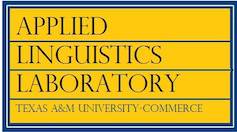The relationship between Iranian university EFL students’ multiple intelligences and their use of language learning strategies: An exploratory study
DOI:
https://doi.org/10.21283/2376905X.2.25Keywords:
LANGUAGE LEARNING STRATEGY, MULTIPLE INTELLIGENCES, STUDENTS OF ENGLISH AS A FOREIGN LANGUAGEAbstract
The present research contributes to an increased understanding of the potential relationships between multiple intelligences and the choice and frequency of use of language learning strategies. Forty-one EFL students from Urmia University (Iran) completed Oxford’s (1990a) Strategy Inventory for Language Learning and the McKenzie (1999) Multiple Intelligences Inventory. Data analyses revealed a moderately positive relationship between the participants’ multiple intelligences and language learning strategy use (r = .58). Pearson Product-Moment correlation also showed medium-to-large positive relationships within and among the categories of multiple intelligences and the types of language learning strategies. Implications of this study for EFL education are discussed, and suggestions to improve students’ performance are provided.
Downloads
Published
How to Cite
License
Copyright (c) 2015 Zainab Abolfazli Khonbi

This work is licensed under a Creative Commons Attribution 4.0 International License.


